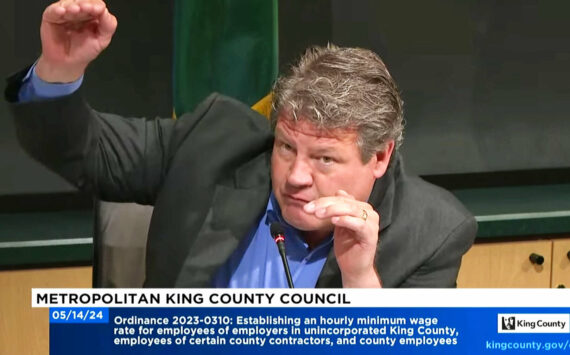Back in 1995, computer network administrator William Sheehan went through a quintessentially modern American experience: A credit-reporting agency erroneously listed bad debts on his credit report. As millions of other Americans have discovered, getting those errors removed was impossible—even though the creditors listed in the report contacted the reporting agency to say that Sheehan did not owe them anything.
See end of article for related links.
Unlike those millions of other Americans, though, Sheehan decided to get even. The result was www.billsheehan.com—an information clearinghouse of sorts on “Liars, Cheats & Scumbags”—Sheehanese for “owners and employees of credit-reporting agencies, and their lawyers.”
The site consists of some entertaining rants written by Sheehan, stories about his legal struggles against credit-reporting companies and bill collectors, court documents, and other materials. But what is most interesting about www.billsheehan.com is how it turns the tables on the credit reporters. “[W]hen you hear from a debt collector, their name is usually false, they’re rude, and they have friends that you don’t,” Sheehan writes. Then he lists as many real names, Social Security numbers, phone numbers, and addresses of credit-reporting agency owners, executives, employees, their attorneys, and other pro-credit-reporter people as he can find. “This site contains some preliminary information about employees of SCA Credit,” the site declares. “If sometime in the past you’ve been harassed by any of the people at this agency, then this site may be of interest to you. If you were contacted by phone at home or your work, the collector most likely used a false name or an alias. You now have their real names, addresses, and in some cases, their home phone numbers.”
Then, in a particularly nice touch, Sheehan includes maps to their homes.
(In the spirit of full disclosure, this reporter attributes much of his glee at Sheehan’s work to dismal and demoralizing mistreatment for years by Sheehan nemesis TRW, now known as Experian.)
One of the frightening dimensions to the Information Age is the amount of personal data retailers, bankers, telemarketers, and credit-reporting agencies can gather on American citizens’ private lives. The ability to harvest, exploit, and sell this information has rightly alarmed those worried about Americans’ privacy. Sheehan believes that this information is used to unfairly abuse people like himself, who are badgered by debt collectors and denied credit because companies with access to personal information are careless in their work and callous in their treatment. “I’m doing this because of a few items in my credit report that only amounted to about $3,000,” he says. “It was either wrong or not mine, and they wouldn’t correct the errors.”
Sheehan also filed a wide-ranging suit against various credit-reporting agencies and others connected with them, and was sued in turn in federal Judge William Dwyer’s court by several companies seeking to shut down or censor his site. Dwyer asked the ACLU to submit a brief on the free-speech implications of Sheehan’s activities, and the ACLU declared that the issue, in the words of ACLU spokesman Doug Honig, was “a slam dunk” in Sheehan’s favor. Attorney Aaron Caplan, who wrote the requested brief, later said, “It’s pretty clear that Sheehan’s not doing anything even close to the kind of conduct that calls for limits.”
Indeed, Sheehan delights in pointing out that all of the personal information on his site (Social Security numbers, phone numbers, home addresses… ) is publicly available elsewhere—either from government agencies, directory assistance, or Internet search engines. “All of the information I got came from the government,” he says. “Anybody can call the secretary of state and get the same information I have. It’s all from public sources.” He is, in other words, hoisting his enemies on their own petard—the gathering and use of personal, purportedly private information.
Dwyer, who issued a temporary restraining order against a small portion of the information on Sheehan’s site, is expected to issue a ruling on whether to extend the order into a preliminary injunction sometime next week.
As Sheehan’s story unfolds, it grows increasingly clear that it is more a story about the Web than about rights to privacy or the practices of information brokers. On the one hand, the Internet has given ordinary citizens a power formerly available only to powerful, connected people and organizations, giving them an effective weapon in fighting back. On the other, anything Web-displayed tends to be exaggerated by both by its advocates and its enemies. Had Sheehan passed out leaflets on street corners instead of putting up a Web site, there likely would have been no lawsuit.
Sheehan’s opponents as much as declared that idea in court. In a hearing last week before Dwyer, attorneys for Experian argued that Sheehan’s activities were dangerous and should be banned not so much because of the nature of the information as because it was “being broadcast all over the world.” The claim, ACLU attorney Caplan says, is a classic example of panic and overhype about the Internet. The counter on Sheehan’s site indicates that it has had 52,736 visitors after two years— hardly testament, Caplan points out, to the inherent danger of Web “broadcasting.”
Related Links:
See it for yourself






